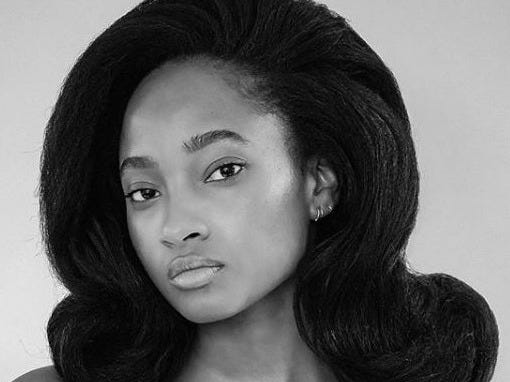- Candace Marie Stewart is one of fashion’s most desired social media consultants.
- After receiving a BA in finance from the University of Arkansas, she went on to obtain an MBA in marketing and finance from Seton Hall University and work at, among others, JPMorgan and Prada.
- In 2020, Stewart founded Black in Corporate, an organization that seeks to champion Black individuals who work in corporate spaces.
- In an interview with Business Insider, she spoke about her career transitions, diversity and inclusion in the fashion industry, and what inspires her to create top-notch social campaigns.
- This is part of Business Insider’s “The Style Series,” highlighting fashion entrepreneurs and businesses across the globe.
- Visit Business Insider’s homepage for more stories.
If Candace Marie Stewart’s life story proves anything, it’s that finance is the perfect background to have in fashion – after all, even fashion is a business.
She currently works as a social media consultant in the luxury fashion industry. She also serves as an adjunct professor at Parsons School of Design – teaching its first graduate-level social media course – and she’s the founder of Black In Corporate, an organization that seeks to champion Black professionals working in corporate America.
But before trying her hand at all fashion had to offer, she obtained a BA in finance from the University of Central Arkansas and an MBA in marketing and finance from Seton Hall University.
Over about a decade afterward, she worked in PR at Alexander Wang, as a manager at JP Morgan Chase, freelance at Lucky Magazine, a market editor at Essence, and in social media at Refinery29, before becoming the senior social media and influencer manager at the late Barneys New York, and now overseeing social media for Prada USA.
In an interview with Business Insider, Stewart talked about her rise to the top of the social media ladder, and how she and other Black professionals in fashion - such as those who created the Black in Fashion Council - are advocating for the equity of Black people, both in fashion and beyond.
"I was born in Oklahoma and raised in Arkansas for most of my life and then moved to New York City and have been here for 10 years."

"Even when I was back at home in Arkansas, I knew I wanted to be in fashion, but more so, I knew I wanted to be in New York City so that I could have access to the best of the best. The cream of the crop is right here in New York, so I was willing to do whatever it took to get here but also stay here.
"Upon moving [to New York], I knew I needed to do something drastically to set myself apart. The city is already extremely competitive and being a Black woman, without connections, who is from rural Arkansas, I would have to do something that made my resume stand out. It was then I decided to pursue my MBA with an emphasis in finance and marketing. While finance wasn't my passion, I wanted to truly learn the corporate side of the fashion industry so I would be prepared to and know how to start and operate a successful business and have a different perspective than my fashion counterparts."
"At the end of the day, a business is a business, no matter if it is fashion, marketing, retail, food."

"For me [choosing finance], it was like, it does not matter what industry I go in, I can always build off this degree, because at the end of the day, you have to make money to stay in business - no matter what company it is.
"In my 10 years of being in NYC, I have heard the word no so many times, it is somewhat ridiculous. But, I knew it only takes one yes. I always could fall back on that one thing. You can receive a million nos, but literally all it takes is one yes. Then from there, the yeses start to become easier to come by. I am at a good place in my career where I do not even have to reach out or look for opportunities. People consistently come to me, which I feel is a testament to my work ethic and tenacity over the years."
"My very first internship started working for the editor-at-large at Essence Magazine at that time. I learned so much about the editorial industry that I had only seen from afar growing up in Arkansas."

"To this day, I remember him saying, 'What do you want to do after this?' And I told him I wanted to be at Vogue after my Essence internship. He then wrote me my first letter of recommendation and I went to Vogue right after. My career started with me thinking that I wanted to be in fashion journalism, because that was what I had visibly seen and read about at home, but writing and journalism led me to a path of social media that I could not have foreseen. What started at Essence, Vogue, and People led me to Refinery29 within their social media department.
"At that time that I was trying to pursue journalism, social media departments did not really exist. Therefore, if I wrote an article for a publication, I would also write social captions to go on Facebook and/or Twitter. I found myself loving that aspect of the work more because I could visibly see an article garnering more traction based on the social posts going out. It was then that I wanted to find a place that was ahead in the social media space and try to soak up as much as I could. And that for me was Refinery29."
"While I did learn a lot being at Refinery29, I quickly realized that I was not really into pop culture. It is just not really my thing."

"I started to look for ways to pivot back into the designer fashion world, but still be in the social media space. Around that time, a social media role came open at Barneys New York. One quick look at the job description and I knew the job would be perfect for me. I could marry the two things that I loved - social media with designer fashion, and I would be able to work with a plethora of designer brands.
"Each [social] platform you should treat as a different platform. You have different audiences and aspects of each platform that certain plans are not cohesive across the board. So essentially, you would not want to treat Facebook like you would treat Instagram, or you would not want to treat TikTok the same as Snapchat."
"In addition, not every brand has to have a social presence on every platform."

"Knowing who your audience is and then tapping that audience on specific platforms is strategic. However, with that being said, you have to stay up to date on new platforms and changes to old platforms.
"Whether you agree or disagree on incorporating newer social platforms into your strategy, you need to keep in mind that what makes sense right now for your consumer will change over the years. For example, Gen Z might not be your current customer, but the goal is to eventually have that group as your customer down the line. Therefore, you want to be able to tap this audience even if they are not purchasing at this time."
"Black individuals many times do not have the generational access to mentors that white people have had access to."

"My ancestors were enslaved while my white counterparts' ancestors were building business and wealth. You cannot even compare our timelines. Black individuals are trying to make up for 400-plus years and the discrepancy is overwhelming.
"My mother raised me to know that I would have to work that much harder than my white counterpart. I would have loved to have had someone that could mentor me in this space, but a lot of my experience came through trial and error and a lot of hard work.
"While I did not specifically have a mentor throughout my process, my peers were as equally as important as a mentor. I have a strong group of core friends, and we all are moving in the same direction. We hold each other accountable, but also lift each other up. We do monthly goals where we check on each other like, 'Where are you at with this? Why haven't you done this? Have you reached out about this?' We have done this for years."
"The corporate culture was not a system built or designed with Black individuals in mind and I thought it was vital to create @blckincorporate — a much-needed resource for those looking for relief, support, and guidance in their jobs."

http://instagr.am/p/CBn8BC2pwtQ
"The platform in itself will continue to evolve into resources for Black individuals to not only exist but also thrive in their work environments. The ultimate success for this initiative is having Black individuals permeate from the top to the bottom of each and every company. I know this will be no easy feat, but this initiative is worth the fight."
"Stress and anxiety — you are going to get that in the fashion industry."

"But for me, the older that I get, the more I realize the effects it has on my body, and nothing will ever be worth me driving myself into the ground for, or not getting a good night's sleep. I believe in therapy, taking mental health days, forming bonds with like-minded coworkers, and more to sustain my health and wellbeing.
"I am not perfect when it comes to shutting off after a long day, but I have come a long way. I have started a new ritual of not sleeping with my phone in my bed and leaving it in the other room. The rest that I have gotten from doing this alone has been life-changing."

